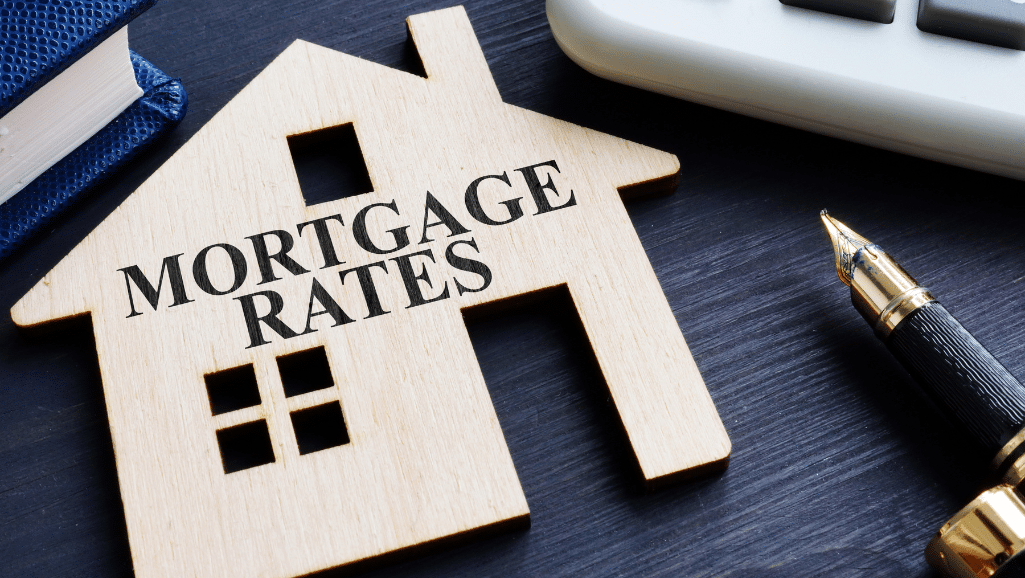
Mortgage Rates 2024
- By Damian Gerry
Mortgage rates play a crucial role in the real estate market and are closely tied to the broader economy. As we look ahead to 2024, it’s important to consider the current state of mortgage rates and what factors may impact them in the coming year.
One of the most important factors that will likely continue to impact mortgage rates in 2023 is the Federal Reserve’s monetary policy. The Federal Reserve has indicated that it plans to keep interest rates low through 2023 to support the economy’s recovery from the COVID-19 pandemic. This means that mortgage rates are also likely to remain low, making it easier for people to afford to buy homes.
Another key factor that will likely impact mortgage rates in 2024 is the state of the economy. As the economy continues to recover from the pandemic, it’s expected to grow at a steady pace in 2024. Economic growth can lead to increased demand for housing and higher mortgage rates, as it creates more jobs and higher wages, which can make it easier for people to afford to buy homes. Additionally, inflation is another variable that could potentially impact mortgage rates, if it rises at a faster rate than expected, it could lead to higher mortgage rates.
The housing market is also expected to be impacted by the ongoing housing shortage. The pandemic has accelerated the trend of people moving out of urban areas and into suburban and rural areas. This shift in population is driving up demand for housing in these areas, which is also driving up mortgage rates. Additionally, the cost of construction materials and labor has also been on the rise, which is making it more expensive to build new homes, and it could also potentially impact mortgage rates.
In conclusion, the mortgage rates are expected to remain low in 2024, due to the Federal Reserve’s monetary policy. However, the economy’s recovery and inflation are also variables to consider, as they could potentially impact mortgage rates. It’s important for buyers, sellers, and investors to stay informed about the current state of mortgage rates and to consider how these factors may impact their decisions. Additionally, it’s also important to note that the housing market is expected to be impacted by the ongoing housing shortage, which could lead to higher mortgage rates. It’s important to be aware of the current market conditions and to work with a mortgage professional to understand the best options available.
Selling or buying a home?
get in touch!
Navigating Your Home Financing Journey: Insights into Mortgage Rates for 2024
How do economic conditions influence mortgage rates in 2024?
Economic conditions play a pivotal role in determining mortgage rates for 2024. Factors such as job growth, inflation, and overall market stability can impact the direction of rates.
What trends are shaping the trajectory of mortgage rates this year?
Trends in 2024 are indicating a delicate balance. While rates are expected to remain relatively stable, shifts in economic indicators and global events can influence short-term fluctuations.
How do changes in the Federal Reserve’s policies affect mortgage rates?
Changes in the Federal Reserve’s policies, especially regarding interest rates, can have a direct impact on mortgage rates. Fed decisions often influence the overall interest rate environment.
Are fixed-rate or adjustable-rate mortgages more favorable in 2024?
The choice between fixed-rate and adjustable-rate mortgages depends on individual preferences and risk tolerance. Fixed-rate mortgages provide stability, while adjustable-rate mortgages may offer initial lower rates.
How can borrowers secure the best mortgage rates in 2024?
To secure the best mortgage rates, borrowers should maintain a strong credit score, explore multiple lenders, consider different loan types, and be aware of market trends that may signal favorable rate conditions.
What role does inflation play in influencing mortgage rates this year?
Inflation can impact mortgage rates, with higher inflation often leading to higher interest rates. It’s essential to monitor inflation trends to gauge potential shifts in mortgage rates.
How do global events affect mortgage rates in 2024?
Global events, such as geopolitical tensions or economic developments in major economies, can create ripples in financial markets, influencing mortgage rates. Stay informed about global factors that may impact rates.
How does the demand for mortgage-backed securities impact rates?
The demand for mortgage-backed securities, which are linked to mortgage rates, can influence borrowing costs. Increased demand often leads to lower rates, while reduced demand may result in higher rates.
What impact do changes in employment levels have on mortgage rates?
Changes in employment levels can influence mortgage rates. A robust job market may contribute to higher rates, reflecting increased economic activity and potential inflationary pressures.
How do credit scores affect the mortgage rates available to borrowers?
Credit scores play a crucial role in determining the mortgage rates available to borrowers. Higher credit scores generally result in lower interest rates, making homeownership more affordable.
What government initiatives are in place to support favorable mortgage rates?
Government initiatives, such as policies set by housing agencies or stimulus measures, can indirectly impact mortgage rates by influencing overall economic conditions and market stability.
How does the real estate market’s health correlate with mortgage rate trends?
The health of the real estate market and mortgage rate trends are interconnected. A strong market may drive demand for loans, influencing rates, while a sluggish market could prompt efforts to stimulate borrowing through lower rates.
What factors contribute to variations in regional mortgage rates in 2024?
Regional mortgage rates can vary based on factors such as local market conditions, housing demand, and economic trends specific to each area. Keep an eye on regional dynamics for a comprehensive understanding.
How do lenders determine individual mortgage rates for borrowers?
Lenders consider various factors, including credit scores, debt-to-income ratios, loan-to-value ratios, and the type of loan when determining individual mortgage rates for borrowers.
What role does the type of mortgage loan play in determining rates?
The type of mortgage loan influences rates. Conventional loans, FHA loans, and other loan types may have different rate structures, impacting borrowers’ choices based on their unique circumstances.
How can refinancing be strategically used in a changing rate environment?
Refinancing can be strategically used to take advantage of changing rate environments. Borrowers may choose to refinance when rates are lower to reduce monthly payments or shorten the loan term.
What impact does the length of the loan term have on mortgage rates?
The length of the loan term, whether 15, 20, or 30 years, can affect mortgage rates. Generally, shorter-term loans may have lower rates, but borrowers should consider their financial goals and budget.
How do down payments influence the mortgage rates available to buyers?
Down payments can influence the mortgage rates available to buyers. Larger down payments may lead to lower rates and, in some cases, the ability to avoid private mortgage insurance (PMI).
What role does competition among lenders play in the mortgage rate landscape?
Competition among lenders is a key factor in the mortgage rate landscape. Lenders may offer competitive rates, promotions, or unique loan products to attract borrowers in a crowded market.
In conclusion, how can Damian Gerry Realty Group assist you in navigating 2024’s mortgage rate landscape?
At Damian Gerry Realty Group, we understand that the mortgage rate landscape can be complex. Our team is here to provide guidance, connect you with reputable lenders, and ensure that you make informed decisions aligned with your financial goals. Connect with us to embark on a seamless home financing journey in 2024!










